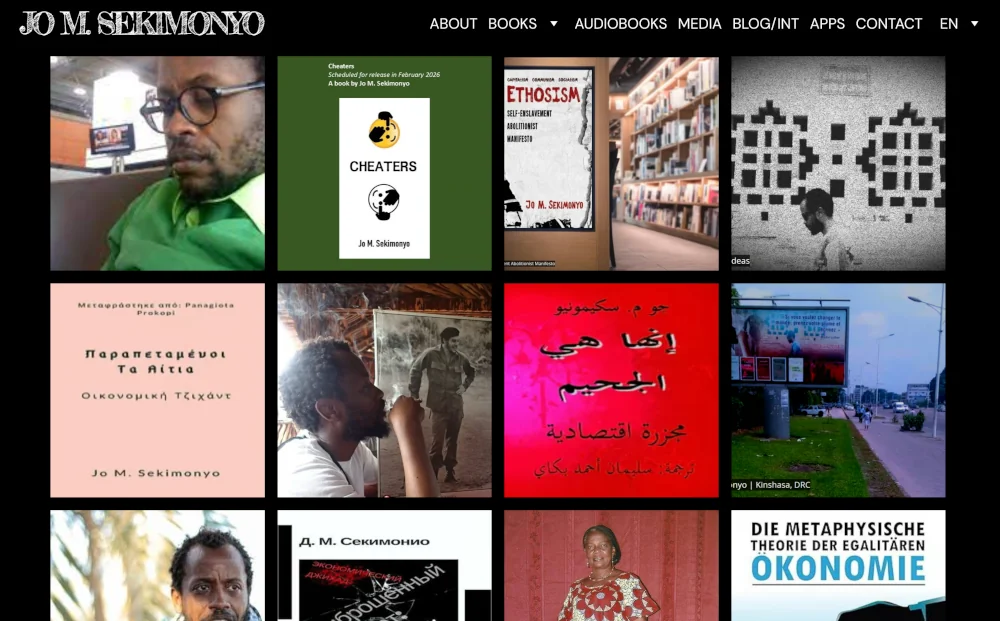I belong to a Congolese generation that, for a long time, had very few reference points to understand that the man who embodied Pan-Africanism in our eyes, Mobutu Sese Seko Kuku Ngbendu wa za Banga, the one hailed as the “father of the nation,” the one who renamed major boulevards after Lumumba was, in reality, his executioner. We were taught to revere one figure without ever being shown the hand that had erased the legacy. This gap between the official narrative and the long-suppressed historical truth sums up the trap of a confiscated national memory. The silence of our parents, even those who had dared distancing themselves from Mobutism, did nothing to dispel this illusion.
It was not until I left Congo to study abroad—and stumbled across digital archives like YouTube that I was able to deconstruct this persistent lie, tear the veil from our history, and finally see Mobutu not as the symbol of a betrayed African dream, but as the instrument of a cleverly disguised neocolonial order.
I will never forget the first time I saw grainy footage of Lumumba, Okito, and Mpolo, hands tied behind their backs in a military truck, with Mobutu standing nearby. His gaze laced with icy arrogance and a theatrical air of superiority. That image shattered something in me. No textbook had prepared me for that moment; no family tale had dared approach its brutal reality. What I had learned was not history, but performance.
Later, during a personal exploration into global wealth disparities in the 21st century, I started seeing Lumumba’s face in places far from home like in Iran, Egypt, Cuba. His name was etched into murals, whispered through street signs. It was not an intellectual exercise anymore; it became a profoundly emotional, almost visceral experience.
One day, with a group of friends who had become like family, we left Lubumbashi to visit the remote site where the plane that carried Lumumba to his tragic end still rests. The place, isolated and neglected, is neither preserved nor honored as one might expect. It was there that something struck me. My quest to understand Lumumba’s “madness”, his refusal to beg for pity to save his life or that of his comrades had, until then, been purely emotional, lacking intellectual rigor.
Ashamed of my ignorance, I dove into his writings, watched his speeches. I bought Congo, My Country, a posthumous compilation of his texts, little known among Congolese today. The very story of that book’s publication reflects a man desperate to be heard, even beyond death. And the more I heard his voice, the more I savored his writings, the more I questioned whether labeling Lumumba merely a “humanist,” or branding him as a “national hero,” was not flattening the complexity of his being, reducing him to a safe icon, and more importantly, diminishing the subversive depth of his intellectual contribution in the most vital realm for any nation: economic development. What if, instead, he was something far more dangerous?
Historical Reframing
At the independence ceremony on June 30, 1960, while King Baudouin praised himself for having “civilized” the Congolese, and Joseph Kasa-Vubu responded with polite gratitude for this so-called benevolence, Patrice Lumumba went against the grain. Unexpectedly, and to some, insolently, he reclaimed the moment, which others recognized as a bold assertion of historical dignity.
He declared, among other things:
“We have known the harrowing labor demanded in exchange for wages that did not allow us to eat our fill, clothe ourselves, or live decently… Our lands were plundered in the name of so-called legal texts… Together, my brothers and sisters, we are going to begin a new struggle… for social justice… so that the lands of our homeland benefit its children… We can rely on our own strength, our own wealth, but also on the loyal cooperation of foreign nations that will not seek to impose their politics upon us.”
As a closing appeal, Lumumba made a clear call, one still too little reflected upon:
“I invite all Congolese citizens—men, women, and children—to resolutely commit to building a prosperous national economy that will cement our economic independence.”
For those who still fail to grasp the moment’s significance, let us be clear: Lumumba did not just respond to a condescending colonial speech. He unmasked colonization itself as an enterprise of economic domination, making it fundamentally an issue of political economy. In doing so, he implicitly challenged the social contract as articulated by John Locke, a mutual agreement to form government to protect life, liberty, and property, a contract that colonial powers never honored with the colonized.
Lumumba’s speech was not an emotional outburst or wounded pride; it was a cerebral act. He shifted the conversation from moral or symbolic grounds to its core issue: economics.
Blueprint for Postcolonial Africa
A year earlier, at the 1959 Congress for Freedom and Culture in Ibadan, Nigeria, Lumumba had already laid out a clear and sober vision for postcolonial Africa. He argued that rapid economic development and the stabilization of our societies required financial, technical, and scientific input from the West, not as dependency, but as a means of knowledge transfer. He called for a dual focus on industrialization and concrete improvements in workers’ lives, whose meager wages fueled poverty and unrest.
For Lumumba, labor unions had to play a central role, not only as rights defenders but as civic and professional educators of the working masses. He also advocated for the removal of the artificial territorial barriers inherited from colonization to ensure free movement of people and goods across the continent.
Beneath the fiery speeches was a structured thinker. In Congo, My Country and in his speeches, one finds not just a nationalist or Pan-Africanist, but a theorist of sovereignty rooted in economics. Lumumba was not romanticizing Africa’s future; he was outlining the mechanics to build it.
His thinking did not belong to moral idealism or identity pride, it was firmly in the lineage of political economy, focused on how to restructure ownership, work, and power.
Political Economy Principles Eclipsed by Myth
To suggest that Lumumba was assassinated solely for political reasons under an already independent Congo is misleading. What truly alarmed imperial powers was not just his anti-colonial rhetoric but his well-structured vision for sovereign political economy. His development principles, rooted in social justice, aimed to restore Congolese control over their own strategic resources. Lumumba’s vision of systemic transformation, if adopted by other Third World nations, would have posed a direct threat to the postcolonial global economic order.
His danger lay not in what he denounced but in what he proposed.
He centered redistribution of wealth, dignified labor, and human capital at the heart of sovereignty. While today’s policymakers praise GDP and infrastructure growth, Lumumba spoke directly to the people. He named the indignity of low wages. He uplifted the importance of labor unions. He did not speak to “Congo”, he spoke to Congolese. He did not speak of “Africa”, he spoke to Africans. His message was clear: the continent’s greatest resource was not copper or coltan, but its people.
Buried Legacy, Recycled Tragedy
In a bitter twist of history, Joseph Kabila, son of a Lumumbist, oversaw the very danger Lumumba foresaw: the economic secession of Katanga, sold under the banner of “strategic partnership.” His successor, Félix Tshisekedi, through the RDC–USA–Rwanda ménage à trois, merely extends this logic under the pretext of peace that, in practice, maintains structural poverty. Burundi stands as a cautionary tale: peaceful, yes, but among the world’s poorest.
For his Congolese compatriots, symbolic gestures are no longer enough. Naming streets after Lumumba or raising statues in his image may soothe national pride, but they do little to awaken the power of his thought. His ideas must be resurrected where they can truly shape minds in lecture halls, syllabi, and public discourse. Lumumba does not belong only in ceremonies; he belongs in the curriculum of economics, political science, and development. Just as Soviet students once studied Lenin, and Mao’s writings shaped generations in China, so too must Lumumba be engaged not merely as a fallen hero, but as a living intellect, disruptive, demanding, and deeply relevant.
To understand Lumumba is to reconnect with an endogenous intellectual tradition rooted in political economy, and to embrace a vision of development in which popular sovereignty goes beyond voting—it manifests in economic control and the modernization of human capital. That modernization means improving individuals’ actual capacities to participate in sophisticated economic, social, and intellectual enterprises.
This does not mean vague “mindset change,” as some lazy or condescending thinkers say, but the creation of a modern ecosystem conducive to social transformation and citizen empowerment. As Lumumba himself emphasized, human dignity demands a certain material foundation, not luxury, but the basics for human flourishing.
The danger is clear: if Congolese, and Africans more broadly, continue to see Lumumba only as a martyr, rather than as a political economist and development thinker, they risk missing the urgency in the voices of others who speak with the same unflinching clarity, the same so-called “madness.” Ignoring these calls could silence the very ideas that hold the key to a genuine intellectual and economic awakening not just for the DRC, but for the continent as a whole, and potentially the wider Global South.
Jo M. Sekimonyo
Political economist, theorist, human rights activist, and writer




